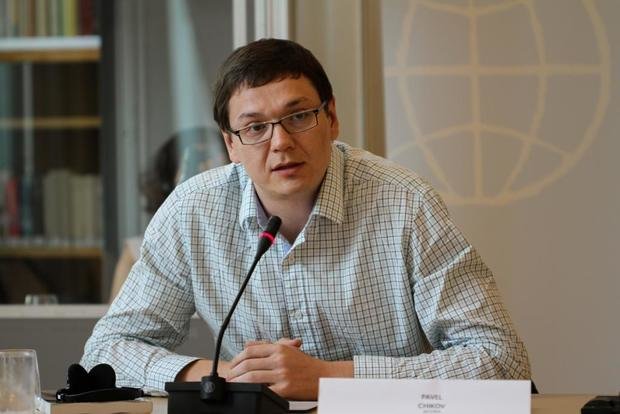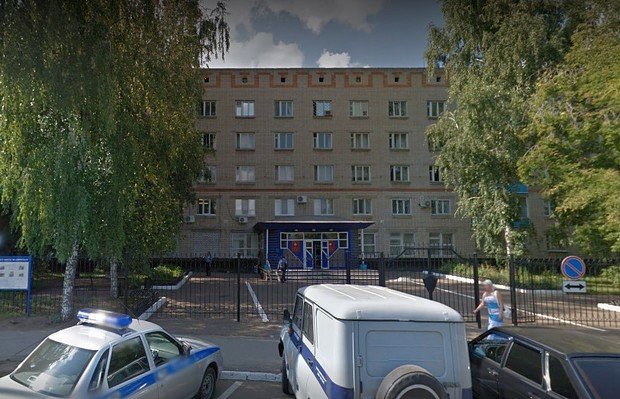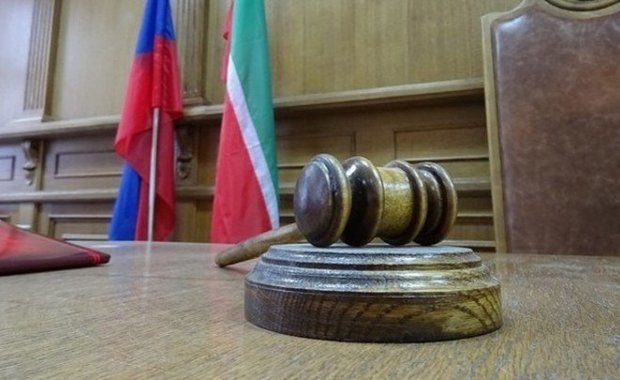ECHR charges Russia for the death of a witness in Tatarstan
The Strasbourg court awarded 48,000 euros to the widow of a Tatarstan citizen, who 15 years ago was taken out of the loop in Tukayevsky police department
A line under the case 'Fania Khairullina vs the Russian Federation' has been drawn by the European Court of Human Rights. The court hasn't established the fact of tortures in the police, about which the widow of a Tatarstan citizen had complained. However, she was awarded 48,000 euros as compensation for other violations. The judges of the ECHR found that in 2002 the public officers of Tukaevsky district of Tatarstan violated the rights to life, liberty and personal security of witness Zhavdet Khairullin. Read the details in the material of Realnoe Vremya.
About how the murder turned into self-defence
This story began on 7 September 2002 in the village of Novy, Tukaevsky district. Zemfir Gallyabiev, a local dweller, was beaten to death. A friend of the deceased, Vasil Vasikov, was arrested on suspicion in this crime on September 12th. He though not immediately but confessed — he said they were drinking alcohol three of them, quarreled, fought and when Vasikov found himself on the floor, he grabbed a stick and struck with it his attacker Gallyabiev. A third person at that meeting, as he said, was Zhavdet Khairullin, who did not participate in the fight.
The case of Vasikov went to the court on a charge of murder, however, on 30 January 2003, the Tukaevsky district court terminated the prosecution because public prosecutor Agliullin in the course of the process dropped the charges and stated that Vasikov's actions were dictated by the necessity of self-defence. As chairperson of the international human rights group Agora Pavel Chikov told Realnoe Vremya, on the eve of such an unexpected court's decision, Vasikov's attorney presented the court two witnesses who saw how on 7 September Gallyabiev was being beaten brutally by two young men in the village Novy. Vasikov stated that he confessed in committing the crime under tortures.
''Instead of dismissing the case, the court should have acquitted Vasikov and remitted the case for additional investigation. But then it would definitely revealed the story with Zhavdet Khairullin, Pavel Chikov says, who represented the interests of Khairullin's widow in the European Court of Human Rights.

The witness did not live
At the time when the court was releasing Vasikov, his friend Zhavdet Khairullin was no longer alive. He died on 13 December 2002, after three months of a coma. He was taken to the hospital from Tukaevsky district police department, where Zhavdet had already testified against Vasikov and made a call to his wife that he would be released the next morning. He asked his son Rustem to meet him.
Later, it was Rustem Khairullin who was telling to the human rights defenders – he had been waiting his father on 14 September for 16 hours. First, a duty officer said him that Vasikov was about to be released, and in the evening — that both were taken to the police department of Naberezhnye Chelny. The Department of Internal Affairs did confirm this information. The family started calling hospitals and morgues and found out: Zhavdet Khairullin was in reanimation in an ambulance hospital. At a personal meeting the doctor told the relatives — the patient was brought in a coma at 0:25 a.m. on 14 September from the Tukaevsky district police department and the police was always enquiring about his health.
The doctors did not conceal from his family that, according to the police, Khairullin Sr. tried to commit a suicide. The relatives were very surprised — from their words, there were no traces of a loop on the neck, but on the hands there were cuts and abrasions, typical of handcuffs. Why were they applied to a witness?! Khairullin's wife learnt from chief of the Tukayevsky criminal investigation department Mansurov that her husband was released from the department already at seven in the evening on 13 September, and she couldn't believe it — she remembered his only call from the police at eight in the evening.
The criminal case was suspended or terminated for 20 times
The agency inspection of the Interior Ministry under the leadership of deputy chief of the Tukayevsky police department Garipov revealed only a ''weak control over the building of the Tukayevsky police department during off hours, resulting in a suicide attempt of the citizen.'' Captain Garipov established that on 13 September 2002, Zhavdet Khairullin was detained twice — at 12:55 p.m. to establish the identity he was taken by the officers and at 1:30 p.m. he was released, and at 4.00 p.m. — by other officers, headed by chief of criminal investigation department Mansurov, who was engaged in the case of causing grievous bodily harm to Gallyabiev. According to the inspection results, the interrogated witness ''testified against Vasikov'' about the fight between him and Gallyabiev and at about 8:00 p.m. he was released on condition to appear the next morning to give a formal statement to the investigator.

At about 11:15 p.m., duty detective of the criminal investigation Fomin went to the balcony of the fifth floor of the police building to have a smoke and ''suddenly saw a man sitting on the floor.'' He was not answering to the questions. Lieutenant Fomin noticed a rag on the man's neck tied to the balcony, later it turned out it was a jacket. The duty untied the man, checked his pulse and, according to him, ran to the duty room. From there it came two other offices, began to do artificial respiration to the unknown, they were joined by the deputy chief of the department, and after some time, the man ''began to breathe, the pulse began to be felt.'' Then one of the staff ran to call an ambulance, but it was going so long, in the end, the police took the victim to the first floor — in the chamber for administrative detainees, allegedly because there was a couch, from where he was taken by medical workers.
Interestingly, later a doctor told the investigators and human rights defenders that he was laying and dying in the chamber on the floor, and the ligature marks on his neck were not similar to the ones that appear when it is a real hanging.
The public prosecutor of the district initiated a criminal case on signs of authority abuse in relation to unidentified officers of Tukaevsky district police nearly a year after the death of Zhavdet Khairullin — on 3 December 2003. They haven't been identified yet — the case has been suspended for 20 times and terminated for lack of corpus delicti, the human rights activists told. The last time the material was reanimated after the incident in the police department Dalny in 2012, but it was not brought to trial.
The Russian court evaluated the suffering at 250,000 rubles
The original cause for initiating the case were the statements of Khairullin's widow and the results of public investigations of the Kazan human rights centre. So, from previously accused of a murder Vasikov the human rights defenders found out that illegal methods were applied to him and his friend during the interrogation.
Vasikov said that he was beaten, forced to wear a gas mask and blocked air access to obtain a murder confession. The victim assured that because of zealous officer Fomin he twice lost consciousness, he received no medical assistance and after a day — from 12 to 13 September – of such interrogation he signed explanation, compiled by police officers, without reading. According to Vasikov, the day after his detention, he heard from the next room Khairullin's screams.
The investigation considered the version that Khairullin became a victim of violence and died during tortures, escaping from violence he decided to commit a suicide. The paradox is that the lack of results of the investigation did not prevent Fania Khairullina with the help of the Kazan human right center to sue a compensation. In 2008, she turned to the Novo-Savinovskiy district court of Kazan with the claim of 1,5 million rubles. ''500,000 rubles for unlawful detention, another 500,000 for the torture and death of a spouse, and 500,000 — for delays in investigation,'' says representative of the victim Pavel Chikov. ''The court awarded only 250,000 rubles, and only in the part of the death of the detainee.''

According to Chikov, the decision of judge Kuliyev was significant not only for Khairullina. ''It has formed judicial practice for such cases not only in Tatarstan. The judge proceeded from the fact that for seven years the investigation had not questioned the qualification of the crime, the question was only to define specific police officers, so the fact of the violence did take place.''
The Khairullina's complaint to the ECHR was communicated in 2010. The decision was made only yesterday. The Russian Federation did not admit the claim of Khairullina, believing that after considering the claim by the Novo-Savinovskiy district court and the dismissals of the investigative committee she ''lost a victim status.'' Nevertheless, the judges of the ECHR found in the history of the detention and death of the Tatarstan citizen violations of the right to life, liberty and security of person, therefore, obliged Russia to pay to the widow of Zhavdet Khairullin 48,000 euros plus any taxes that this amount subjected to.
The Interior Ministry and the Investigative Committee for Tatarstan have not commented on the decision of the Strasbourg court yet.